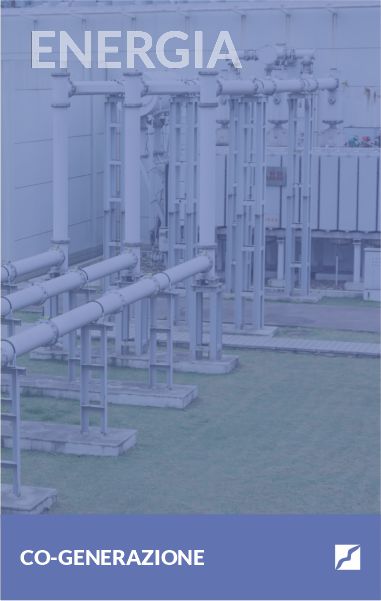COGENERATION

COGENERATION
Cogeneration is a high energy efficiency technology through which there is the combined production of electricity and heat, usable for heating buildings and industrial processes. Cogeneration can ensure significant energy savings, with a cut in primary energy consumption and a lower environmental impact. Like solar energy, the energy production of cogeneration plants is first directed towards self-consumption, that is, to cover the energy needs of the plant owners. Cogeneration systems typically burn fuel (natural gas, oil or biogas) to turn generators to produce electricity and then use heat recovery devices to capture the heat produced by the turbine or engine.
This heat is then converted into useful thermal energy, usually in the form of steam or hot water. By using a cogeneration plant for self-consumption needs, electrical energy losses that inevitably occur during transport along the national distribution network are limited. Cogeneration plants are born from the attempt to exploit the heat dispersed by an electricity production plant.
In a simplistic way, a cogeneration plant works thanks to:
- a “prime mover” engine (which can be powered in various ways);
- an electric generator that, driven by the engine plant, converts mechanical energy into electricity,
- heat exchangers, which perform the function of heat recovery.
The first advantage of a cogenerator is therefore to reduce primary energy consumption (fuel), since it can be used to produce electricity and heat: this results in an improvement in overall efficiency and therefore a decrease in consumption.
This leads to another fundamental advantage, related to the protection of the environment: it reduces emissions of polluting substances caused by the production of thermoelectric energy. Consequential economic advantages, with the production of energy at lower costs and with the possibility of taking advantage of incentives if you invest in cogeneration.
Cogeneration is also possible at home and is called “micro-cogeneration”. Unlike cogeneration that uses thermal energy as a by-product of electrical energy, micro-cogeneration mainly produces heat by generating electricity as a by-product.


